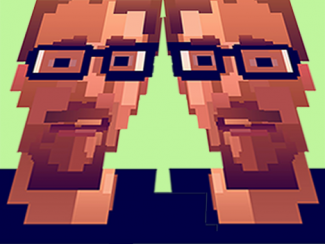PIXEL POWER
Game developers uniting to say game over to long hours and low pay

YOU CAN ALWAYS GET MORE LIVES. All video game players know that. Video game developers can’t. They’re stuck in the real world with just one life and it’s often a killer. So, often that many of them are working to form a union.
Life on the job for developers is a lot like factory work from the industrial era: suffering memory loss or being physically paralyzed from stress, with “The Boss” pushing, pushing, pushing till you feel your soul is pushed into the machine, or the screen.
But developers are beginning to push back with an effort to form a union.
The online road to unionization
The US video game industry is one of the nation’s fastest growing economic sectors, providing more than 220,000 jobs, with $36 billion in annual revenue. Hollywood is the next biggest entertainment sector. However, Hollywood has unions to represent and protect all the workers who make movies and has had these unions for decades. Game developers don’t.
A game developer who goes by Emma has been working behind the scenes to make the idea of unionizing a reality. Working alongside other developers, Emma has helped to create Game Workers Unite, an advocacy group for developers. “It’s really important to unionize because workers have literally no representation or rights when it comes to negotiating with their companies or negotiating with their employer,” said Emma.
“If you’re working in games, there’s a 99 percent chance you’re being exploited as a worker. We’re trying to start that conversation because it’s really taboo.” Emma won’t give her first name for fear of harassment and retaliation from her employer, but the group has been working on online zines and handing out fliers to support unionization.
Fear the ‘crunch’
Web development is a relatively new line of work but there is nothing new about how developers get treated at work. The pressure to produce is relentless. The hours are punishing. Rewards are few. Job security non-existant. It’s the way worklife was before unions.
Developers live with the fear of mass firings. Gaming studios typically hire numerous developers for a project, make them work like dogs, and then once the project is done, lay them all off. So not only do these studios burn the developers out, they dump them into limbo, crawling out of the office to find their next gig with little money and no time to recover.
Worse still is what the web development industry calls a “crunch”. A crunch is a time when developers go into production mode non-stop. They often have to work up to 20 hours a day and sometimes more than 100 hours a week with no time off. It all takes a heavy physical, psychological and emotional toll on game developers and designers.
Crunches have become a normal part of every developer’s work life. Marcin Iwinski thinks crunches are “pure evil.”
“People think that making games is easy,” says Iwinski, a Polish video game publisher. “It’s hard-core work. It can destroy your life.”
Clint Hocking, a game designer in the United States, said he worked so long and hard once during a crunch that he started to suffer memory loss as a result of stress and anxiety. Brett Douville, a veteran game programmer in the United States, said he worked so long that he found himself temporarily unable to step out of his car; he was paralyzed by stress.
Organizing for change
These stories aren’t unique. Developers all over the United States and Canada have been popping up from behind their computer screens to tell tales of exploitative and toxic environments and to call for change.
Tanya X. Short, the co-founder of an independent gaming studio believes you can make good quality games without the crunch, “Crunch trades short-term gains for long-term suffering,” said Short.
Tanya encouraged colleagues to sign an online pledge against excessive overtime. The pledge, which was published last year, now has over 600 signatures and counting. It’s big step forward for the developer community and one that Game Workers Unite supports.
“We’re looking at models like guilds and the examples led by a lot of digital media companies who are working with writers guilds to develop local unions,” said Emma. “We’re not going in to protest or fight or yell. We want to see if there is a path to go forward where we work on these things, negotiate, and talk about first steps.”
- 30 -












Add new comment